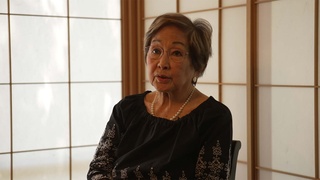Interviews
Having patience in Japan, being both
I try to pick up the good points from the American side and the good values and cultural things from the Japanese side. I think I mentioned a little bit is the patience issue. Normally, in Japan, they've got all these rules and regulations that they really adhere to. You know, there is no exceptions on some things. In the tea ceremony, you know, you've got to put it here. You may not put it here. It's got to be here. There are certain rules and regulations that are hard to understand. And sometimes there might be a reason, but it just doesn't seem logical. So instead of getting all mad about it, you just throw up your hands and go, Oh, it's Japanese; we're in Japan. And then I kind of deal with it.
In that way, I see...I see the service industry here in Japan as very nice. Whereas the Americans can kind of be abrupt and almost rude in some ways, when you get used to being here in Japan, you know, the service is so ultimately...they always make you feel special. 90 percent of the time, depending on where you go. So in a way, just feeling-wise, I think...I don't know, my husband would probably know the best. I am American in a way, but also very Japanese in another way.
Date: September 3, 2003
Location: Tokyo, Japan
Interviewer: Art Nomura
Contributed by: Art Nomura, Finding Home.








